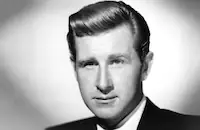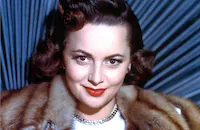The Fifth Musketeer

Brief Synopsis
Cast & Crew
Ken Annakin
Beau Bridges
Sylvia Kristel
Ursula Andress
Cornel Wilde
Helmut Dantine
Film Details
Technical Specs
Synopsis
King Louis XIV has without his knowledge a twin brother, Philippe, but when he is told, he immediately locks him up in the Bastille. The king wants to increase his popularity and stages an assassination against himself where Philippe is dressed as king Louis. But Philippe manages to escape the assassination and everybody believes him to be the real king...
Director

Ken Annakin
Cast

Beau Bridges
Sylvia Kristel

Ursula Andress

Cornel Wilde

Helmut Dantine

Lloyd Bridges

Jose Ferrer

Alan Hale Jr.

Olivia De Havilland

Rex Harrison
Ian Mcshane
Crew
David Ambrose
David Anderson
Peter Boyle
George Bruce
Ken Buckle
Jack Cardiff
Madeleine Cofano
Malcolm Cooke
Ana Criado
Peter Diamond
Alexandre Dumas
Helmut Graef
Theo Harisch
Simon Kaye
Heinz Lazek
Herta Matula
Terry Needham
Riz Ortolani
Fernando Perez
Tony Pueo
Kay Rawlings
Otto W Retzer
Ted Richmond
Elliot Scott
Cristobal Criado Sola
Charles Torbett
Irmi Von Ruxleben
Jim Willis
Herman Wolf
Robert Wright
Lilli Zangerle
Videos
Trailer
Hosted Intro
Film Details
Technical Specs
Articles
The Fifth Musketeer
The story opens with Philippe (Beau Bridges) being trained in combat by Porthos (Alan Hale, Jr) and Aramis (Lloyd Bridges, Beau's real life father) while d'Artagnan (Cornel Wilde) and Colbert (Rex Harrison) make their way to the musketeers' lodgings, unknowingly observed by the king's men preparing to raid the musketeers and take them to the Bastille. Philippe's training turns out to be quite timely as his skills are put into action when the king's men break in and begin to fence with the musketeers. Eventually, after putting up a good fight, the musketeers are all arrested and Philippe is fitted with an iron mask before being thrown in a dungeon. The reason, we discover, is because he's a lookalike of King Louis XIV (also Beau Bridges) who plans to use him for a little ruse. He will substitute Philippe for himself, have Philippe, as the King, publicly assassinated, then show up still alive, proving that he is divine and invincible.
Director Ken Annakin never had the same style as Richard Lester, nor as impressive a resume. While Lester has A Hard Day's Night (1964) and The Knack and How to Get It (1965) to his credit, Annakin dealt with more lackluster family fare like Swiss Family Robinson (1960) and several episodes of Walt Disney's Wonderful World of Color. He did gain some experience with action directing movies like Battle of the Bulge (1965) but his style is sedate, at times stolid. It's not a style ideally suited for rollicking adventure and there are times during The Fifth Musketeer when it's apparent the director is trying to create action through editing, a brilliant technique that can work to tremendous effect. Here, however, it feels more abrupt than flowing, more haphazard than organized, more frenetic than fast-paced. Annakin does better with dialogue scenes between the actors. Fortunately, there are more of those than action and they carry the movie.
It also helps when a movie has a cast as formidable as this one. Rex Harrison, Cornel Wilde, Jose Ferrer, Lloyd Bridges, Beau Bridges, Alan Hale, Jr., and Olivia de Havilland. The two top billed stars in the credits, Sylvia Kristel (reportedly dubbed by another actress) and Ursula Andress are the weakest presences on screen. Still, it's an excellent cast even if the effect is a bit jarring at times, watching Lloyd Bridges, for example, make no attempt whatsoever to be anything but a red-blooded American in accent and attitude (one half-expects him to walk around with a lasso and spout Will Rogers aphorisms throughout the movie).
One thing's for certain, the cast is having a great time. Alan Hale, Jr. in particular, seems to be having the time of his life playing Porthos, and maybe he was. After more than a decade of being associated with Gilligan's Island, he was probably happy to break that particular mold and take on a new role. An interesting side-note: In the 1939 version of The Man in the Iron Mask, Alan Hale, Jr.'s father, Alan Hale, played Porthos as well.
Beau Bridges, as red-blooded American as his dad, takes the Louis XIV role appropriately over the top, contrasting him so well with his down to earth Philippe, the viewer forgets it's the same actor playing both roles. And Rex Harrison, Cornel Wilde and the great Olivia de Havilland, in her final screen appearance, seem happy just to be involved, and not in a position to carry the movie. Nevertheless, when Harrison is on the screen, he commands it unlike anyone else in the cast.
The movie has another star in its credits, Jack Cardiff as cinematographer. The famed cameraman behind The Red Shoes (1948), Black Narcissus (1947), and The African Queen (1951), does good work here but the mostly close-up action, likely the director's choice, doesn't give Cardiff a lot of room to create space with long shots nor does the flat lighting allow for the kind of atmosphere Cardiff was so famous for creating (the movie was filmed at real castle locations in Austria and that limited what could be done).
The Fifth Musketeer is just one of many adaptations of Dumas and, in particular, The Man in the Iron Mask. It's a story both well-established but also containing enough detail that one could see every version and still have room for one more since the story might be slightly different, depending on what the screenwriter chooses to cover from the books. Plus, it's an opportunity to see Olivia de Havilland one last time, and a cast of greats behind her. And who could pass that up?
Producers: Heinz Lazek, Ted Richmond
Director: Ken Annakin
Screenplay: David Ambrose
Music: Riz Ortolani
Cinematography: Jack Cardiff
Film Editing: Malcolm Cooke
Production Design: Elliot Scott
Art Direction: Theodor Harisch
Costume Design: Tony Pueo
Cast: Sylvia Kristel (Maria Theresa), Ursula Andress (Louise de la Vallière), Beau Bridges (Louis XIV / Philippe of Gascony), Cornel Wilde (D'Artagnan), Ian McShane (Fouquet), Alan Hale, Jr. (Porthos), Lloyd Bridges (Aramis), José Ferrer (Athos), Olivia de Havilland (Queen Mother), Helmut Dantine (Spanish Ambassador), Rex Harrison (Colbert)
by Greg Ferrara

The Fifth Musketeer
Quotes
Trivia
Miscellaneous Notes
Released in United States 1979
Re-released in United States on Video February 16, 1994
Released in United States 1979
Re-released in United States on Video February 16, 1994















